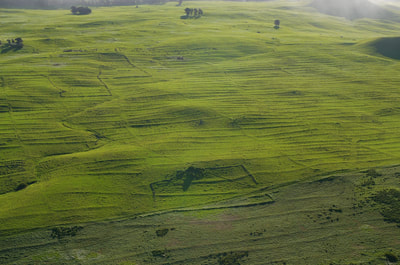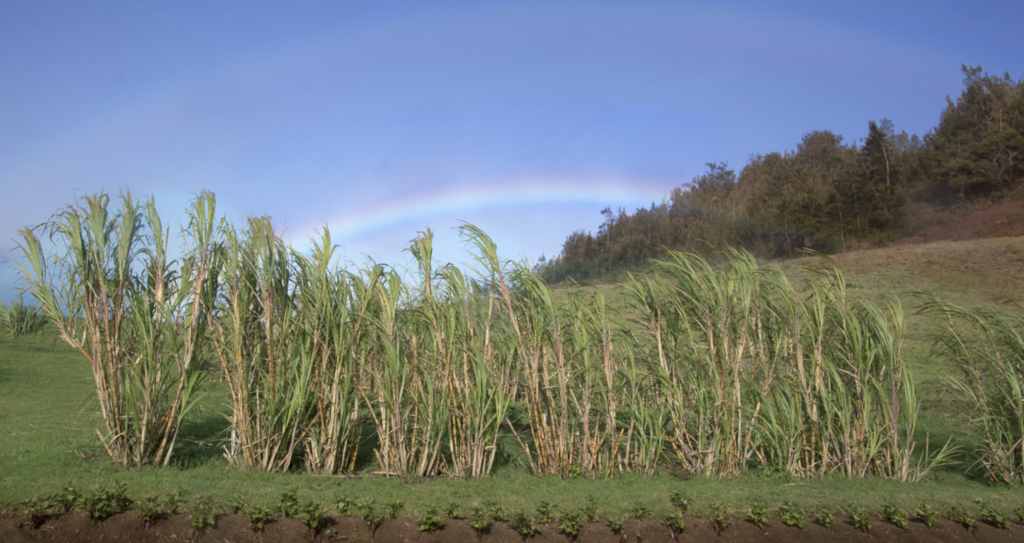
Photo and caption by Ulu Mau Pua Nui
Rain-fed agricultural systems were commonly used on the island of Hawai’i and areas of Maui prior to European contact. In the 19th century, these systems were mostly abandoned and very little is known about how they functioned.
Ulu Mau Puanui is a non-profit organization formed for research and educational purposes to discover and understand how Hawaiians sustained rain-fed (unirrigated) intensive farming for centuries and how it may inform our current efforts to live sustainably.
The organization manages the gardens at Puanui, provides educational programs and collaborates with various educational and cultural organizations that provide learning opportunities for students, teachers, families and community.
Puanui is one of the thirty-three ahupua’a in leeward Kohala that make up the Kohala Field System. The ahupua’a of Puanui is owned by Kamehameha Schools. Ulu Mau Puanui works in partnership with Kamehameha Schools to perpetuate Hawaii’s culture through land-based education and culturally-driven science.

Visit Ulu Mau Puanui and read the articles below to explore the use of dryland agriculture in Hawaii.
Indigenous Polynesian Agriculture in Hawaiʻi
Restoration of ‘Aina Malo‘o on Hawai‘i Island: Expanding Biocultural Relationships
